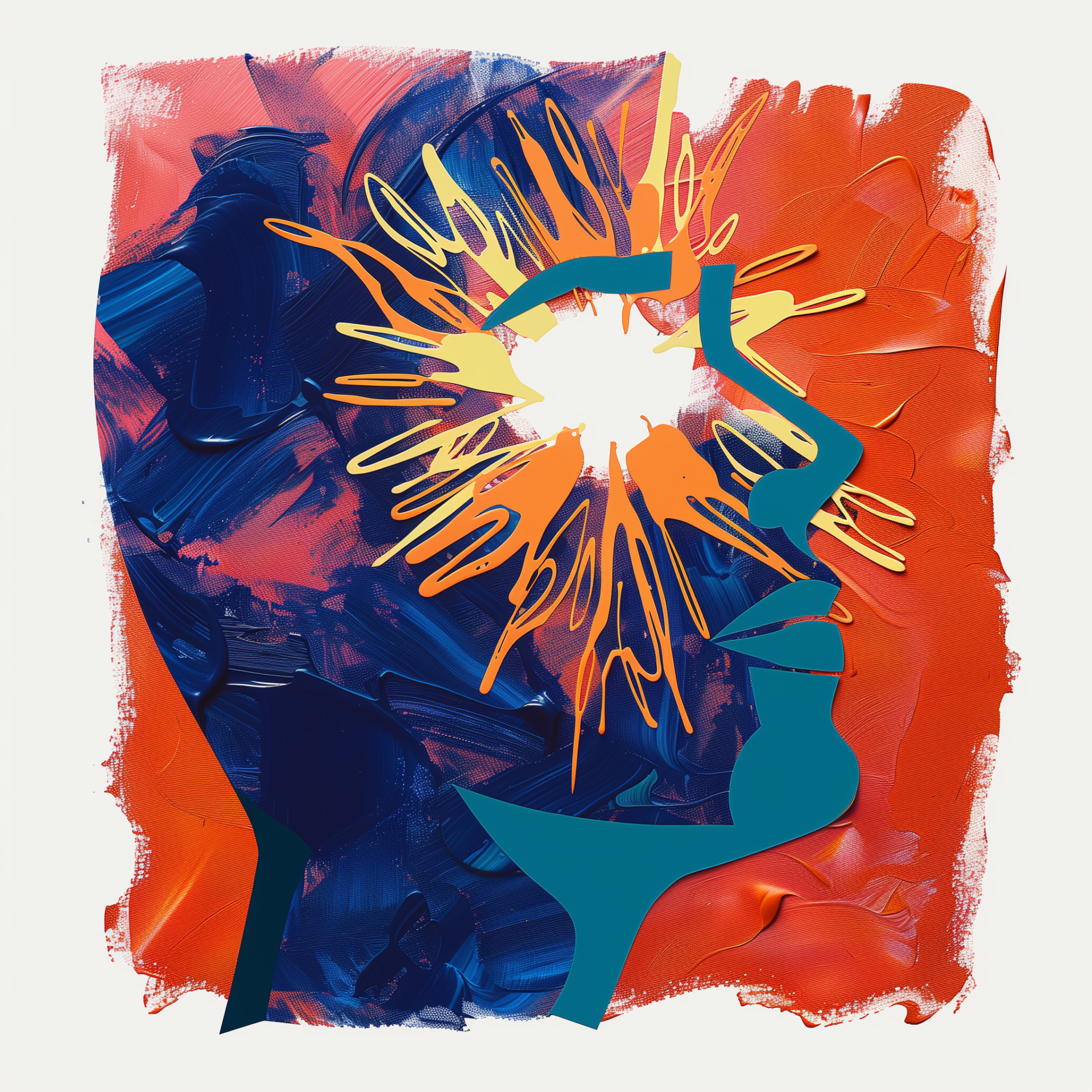
Claude 3 represents the latest generation LLM (Large language model) developed by Anthropic, an AI startup co-founded by former OpenAI members. Standing out for its peak performance on numerous benchmarks, Claude 3 pushes back the boundaries of what was previously considered possible in generative artificial intelligence.
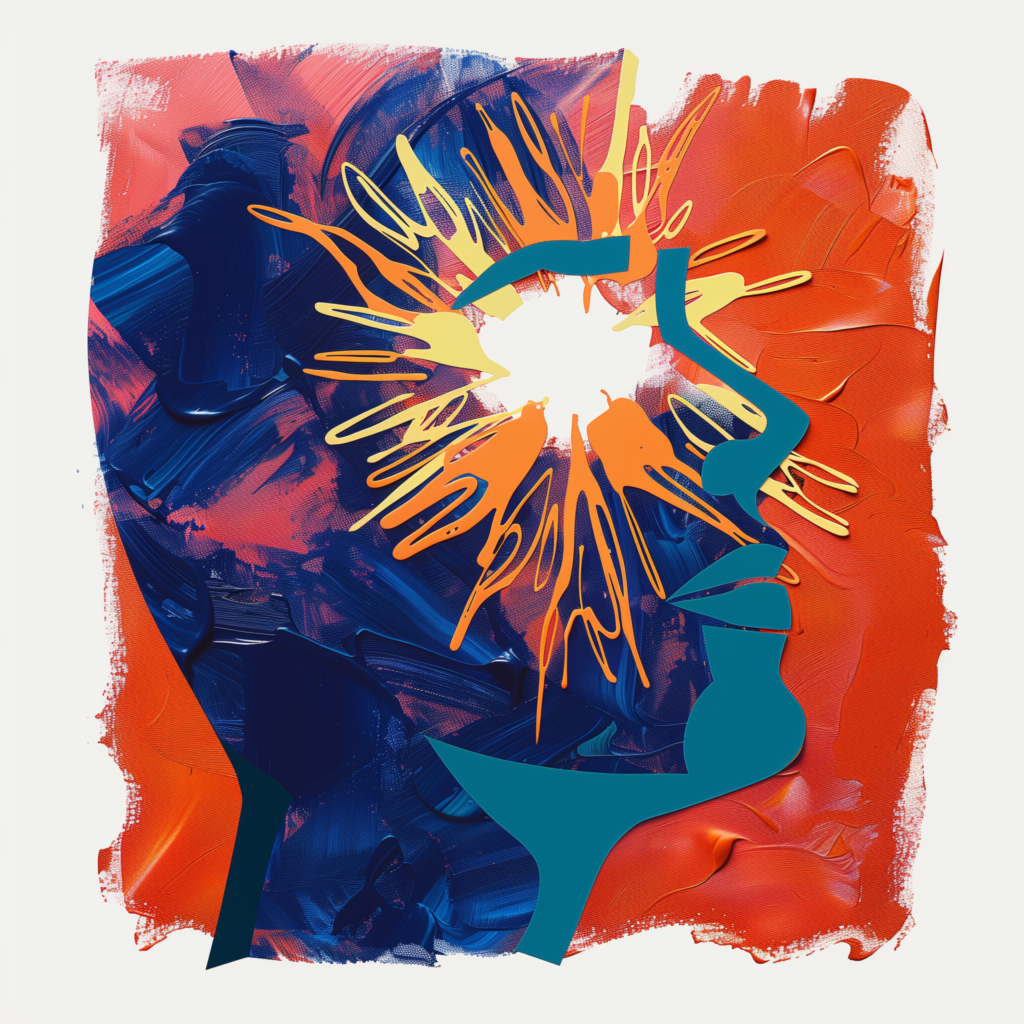
Designed from the outset with a strong emphasis on ethics, transparency and limiting bias, Claude 3 incorporates novel safeguards such as mechanisms for fact-checking and promoting humanistic values.
With its unprecedented performance and its responsible approach, Claude 3 is now positioned as a serious challenger to the supremacy of GPT-4, OpenAI’s flagship model which until now has reigned as the undisputed master of the sector.
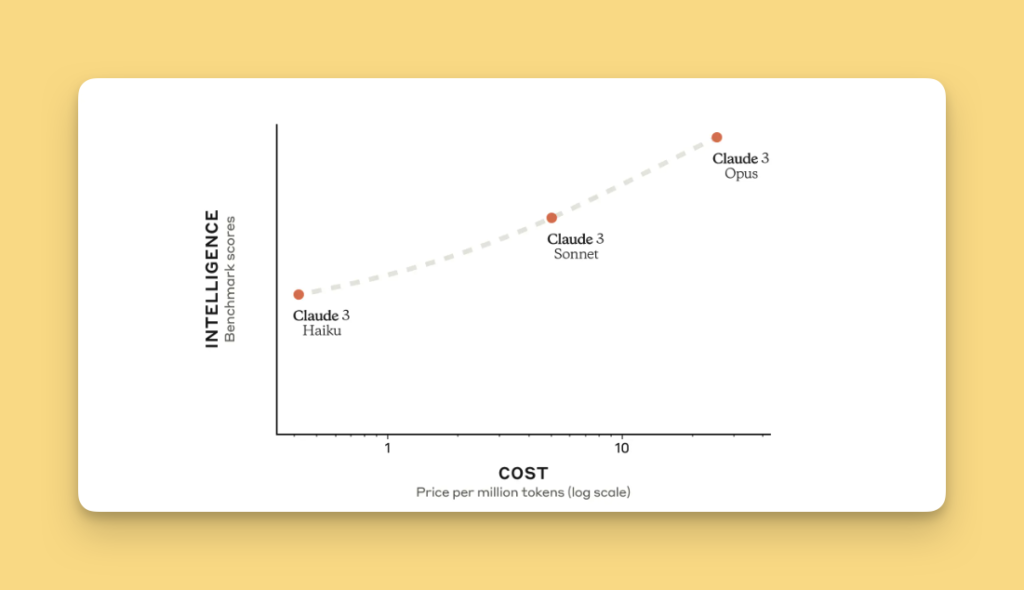
Available in three versions: Opus, Sonnet and Haiku. Opus being their phare model, Claude 3 excels particularly in demanding tasks such as complex logical reasoning, in-depth data analysis or advanced computer code generation.
Enhanced architecture
At the heart of its exceptional capabilities lies a completely redesigned architecture, which combines a massive increase in model size with major innovations in terms of attention mechanisms and data processing.
Unmatched scale for greater power
One of Claude 3’s main strengths lies in its colossal size of 1.8 trillion parameterss, almost 10 times larger than GPT-3, OpenAI’s previous flagship model.
This increase in scale gives Claude 3 unprecedented computational and memory capacity, enabling it to process massive quantities of training data and thus acquire a deep understanding of many fields.
But that’s not all. Anthropic’s researchers have also introduced major innovations in the model’s attention mechanisms, which govern how it focuses on relevant information when processing natural language.
Revolutionary attention mechanisms
One of Claude 3’s key advances lies in the use of hierarchical and parallel attention mechanisms.
This means that the model can focus simultaneously on different levels of language abstraction, from individual words to phrases and broader concepts.
This approach allows for a more nuanced understanding and better consideration of the overall context.
Furthermore, Claude 3 incorporates reversible attention mechanisms, enabling analysis of text in both directions.
Leading-edge performance in reasoning and text generation
Claude 3 excels at complex tasks requiring deep logical reasoning, a fine understanding of nuance and consistent text generation over the long haul.
In standardized tests, the model has demonstrated outstanding performance in areas such as analysis of technical documents, solution of mathematical and scientific problemss, as well as writing articles, scripts and code.
Even on long, complex texts, the model manages to maintain a clear thread, while avoiding the contradictions and inconsistencies often observed with previous AIs.
Training on larger data sets
An ocean of data for deeper understanding
To train Claude 3, Anthropic’s researchers gathered a colossal training dataset of several hundred terabytes.
This immense corpus includes millions of books, scientific articles, legal texts, financial reports, as well as online content from reputable sources.
Thanks to this astronomical amount of information, Claude 3 was able to develop a fine, nuanced understanding of virtually every area of human knowledge.
From complex scientific concepts to the subtleties of legal language, media trends and popular culture, the model now has a veritable encyclopedia of knowledge under its belt.
Extensive thematic coverage
But beyond the raw size of the data, it is above all their diversity that makes Claude 3’s training so strong.
The corpora used cover an extremely wide range of subjects, from fundamental sciences such as physics and biology to more applied disciplines such as engineering, medicine and informatics.
The law, finance, business and economics are also widely represented, enabling Claude 3 to master the concepts and jargon specific to these crucial fields.
Finally, a significant portion of the data comes from media and cultural sources, providing the model with an in-depth understanding of trends, events and topical issues.
Tougher security controls
Combating bias and harmful content
One of the major challenges of generative AI lies in the risk of perpetuating or amplifying biases and stereotypes present in training data.
To remedy this, the Anthropic researchers implemented advanced techniques for detecting and correcting bias during Claude 3 training.
Sophisticated filters were deployed in particular to identify and remove potentially harmful, hateful or discriminatory content from source data.
In addition, balancing mechanisms have been used to ensure that the model is not disproportionately influenced by certain types of content.
The output generated by Claude 3 proves remarkably free of bias related to gender, ethnicity, sexual orientation or other sensitive characteristics.
The model demonstrates great neutrality and respect for differences.
Real-time fact-checking
To guarantee the reliability and accuracy of the information provided by Claude 3, the company has developed a first-of-its-kind real-time fact-checking mechanism.
During text generation, the model performs background queries on reliable factual databases to verify the veracity of the claims it is about to make.
In the event of contradiction with trustworthy sources, Claude 3 automatically corrects or qualifies his statement.
This process of continuous fact-checking prevents the propagation of erroneous or misleading information, a recurring problem with previous AIs trained on unverified data.
This gives Claude 3 users greater confidence in the quality and reliability of the content generated.
An alignment with human values
Beyond the technical aspects, Anthropic was also careful to align Claude 3 with a set of fundamental values and ethical principles.
Thanks to reinforcement learning techniques, the model has incorporated notions such as respect for privacy, protection of individual rights, promotion of equality and non-discrimination.
In his interactions, Claude 3 demonstrates a profound respect for ethics and humanist values.
Enhanced performance
Benchmarks on NLP tasks
Natural language processing (NLP) models have become an essential barometer for assessing progress.
And on this front, the newcomer Claude 3 developed by Anthropic has just caused a sensation by setting new records on numerous reference benchmarks.
Performance, which exceeds even that of OpenAI’s highly anticipated GPT-4, makes it one of the most powerful NLP models to date.
Impressive scores on standard tests
To measure Claude 3’s abilities, Anthropic researchers subjected him to a battery of standardized tests covering various crucial NLP tasks such as text comprehension, automatic summarization, translation between languages and logical reasoning.
On the highly demanding arXiv reading comprehension test, which assesses the ability to answer complex questions about scientific articles, Claude 3 set a new record with an impressive score of 92.7%, far surpassing the 87% achieved by GPT-4.
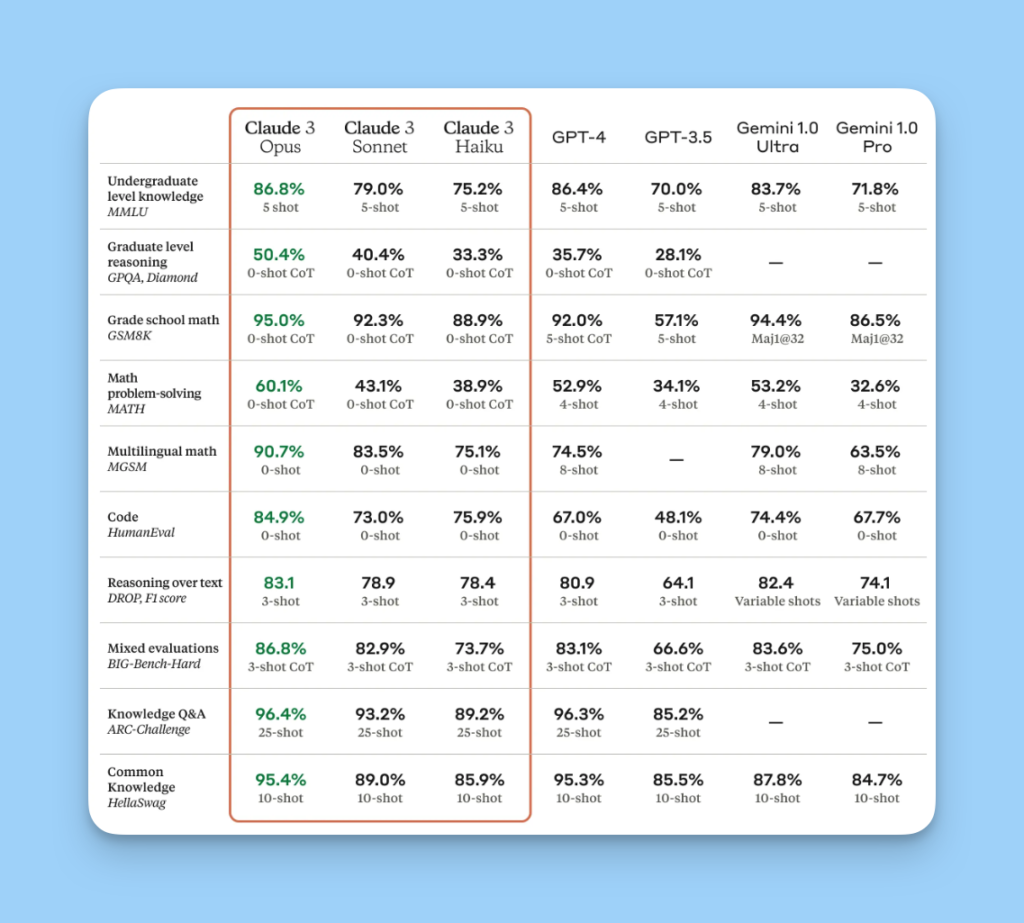
Anthropic’s model also made a strong impression on summarization tasks, managing to synthesize long, dense documents in a concise and relevant way.
On the PubMed dataset, covering abstracts of medical articles, it achieved 51.2% accuracy versus 48.6% for GPT-4.
On machine translation tests between English and other languages such as French, German or Chinese, it consistently outperformed GPT-4 in terms of accuracy and fluency.
An impressive command of logical reasoning
One of Claude 3’s major strengths lies in his abilities for logical reasoning and in-depth analysis, as evidenced by his remarkable performance on demanding tasks such as interpreting computer code or solving complex mathematical problemss.
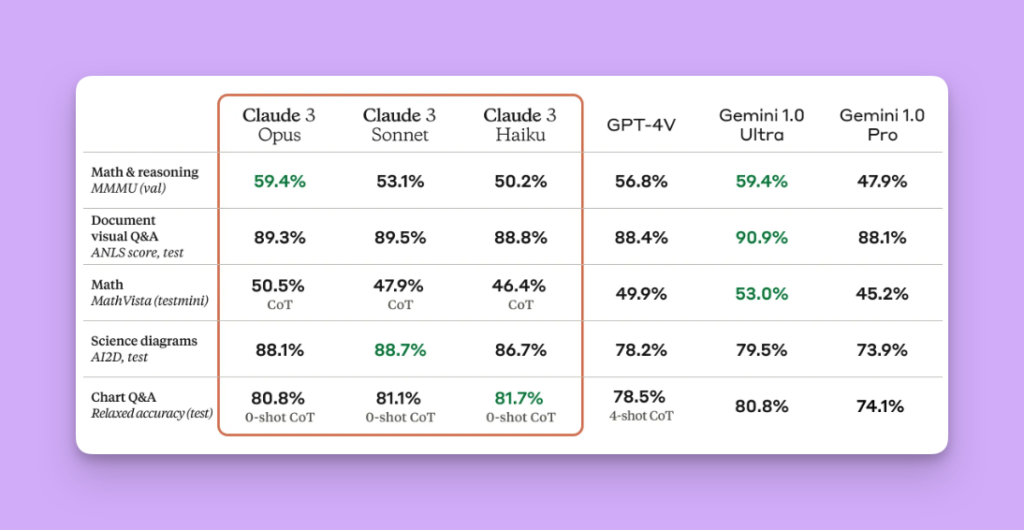
On the very difficult LastCodeParsingProblem benchmark, which involves understanding and explaining snippets of source code, Claude 3 achieved an impressive score of 78.4%, compared with just 62.8% for GPT-4.
A feat that demonstrates his keen understanding of advanced computer concepts.
Anthropic’s model has also made a splash on mathematical and logical reasoning tests, such as GSM8K, which evaluates it on its ability to solve a variety of mathematical problems from textbooks.
With a 72% success rate, it is well ahead of GPT-4 (58%) and other existing models.
Reasoning and analytical skills
Rigorous logical reasoning
One of Claude 3’s major strengths lies in his ability to conduct complex logical reasoning with remarkable rigor and precision.
In standardized tests involving the solution of challenging mathematical and scientific problems, the model demonstrated an impressive command of advanced concepts and solution methods.
This logical rigor also shines through in the legal analyses carried out by the model. Confronted with a complex case involving contradictory laws and precedents, Claude 3 was able to untangle the various issues, evaluate the respective arguments and formulate a structured, substantiated argument worthy of the best legal minds.
Fine understanding of nuance and context
Beyond pure logic, Claude 3 also excels in taking nuances and the overall context into account during his analyses.
This ability is crucial when dealing with complex subjects where human, social and ethical factors come into play.
This ability to grasp complexity in all its dimensions makes Claude 3 a leading decision-making and strategic analysis tool for companies, governments and organizations.
Generating high-quality content
Claude 3 also proves to be a remarkable generator of high-quality textual content, whether in creative, technical or other registers.
Thanks to major algorithmic innovations, it manages to produce texts of unrivalled fluidity, coherence and richness, further pushing back the boundaries of what was previously considered possible.
Consistency and fluidity
Beyond the richness of the content generated, Claude 3 stands out above all for its remarkable ability to maintain coherence and fluidity of writing over long texts, even in complex contexts involving multiple narrative or conceptual elements.
Claude 3 vs ChatGPT
Performances
According to Anthropic’s benchmarks, the Claude 3 Opus model would outperform GPT-4, which powers ChatGPT Plus
To assess the true capabilities of an AI model, nothing beats standardized benchmarks measuring their performance on complex tasks.
And on this front, the figures speak for themselves:
- On the highly demanding MMLU testing university-level knowledge, Claude 3 Opus edges out GPT-4 with a score of 63.9% vs. 59.5%. This superiority is confirmed on other flagship tests such as the GPQA assessing advanced expert reasoning (76.2% for Claude 3 Opus vs. 72.8% for GPT-4) or the GSM8K dealing with basic mathematics (72% vs. 58%)
Capabilities
- Claude 3 particularly excels at logical reasoning, in-depth analysis and code generation.
- ChatGPT (GPT-3.5 and GPT-4) has a broader, more generalist knowledge base, making it more versatile for a variety of tasks than Claude 3
Features
- ChatGPT Plus offers more features like image generation, plugins, a code interpreter and a mobile app, while Claude 3 is more limited for now
- Claude 3 has a larger context window (200k tokens vs. 128k for GPT-4), which is an advantage for long, complex dialogs
Cost and accessibility
Both offer a limited free version and a $20/month paid version. But ChatGPT is more accessible globally while Claude 3 is not yet available in the EU
Read our articles to find out more about chatgpt:
- ChatGPT 3.5 and ChatGPT 4: What are the differences?
- Chat GPT 4 Turbo: Technical details and comparison with GPT-4
- Chat GPT-4o: The AI that redefines Multimodal Interaction
- GPT-4o Mini: Performance, speed and economy for AI
- Comparative between GPT-4o and GPT-4o-mini: which AI model to choose?
- ChatGPT Canvas : The new interface for writing and coding with ChatGPT
To conclude
Anthropic truly shakes up the landscape of cutting-edge generative artificial intelligence, hitherto dominated by the giant OpenAI and its flagship GPT-4 model.
Pushing back the boundaries of what was once considered possible in terms of logical reasoning and the generation of rich, coherent content, Claude 3 is now positioned as a serious challenger to GPT-4’s supremacy.
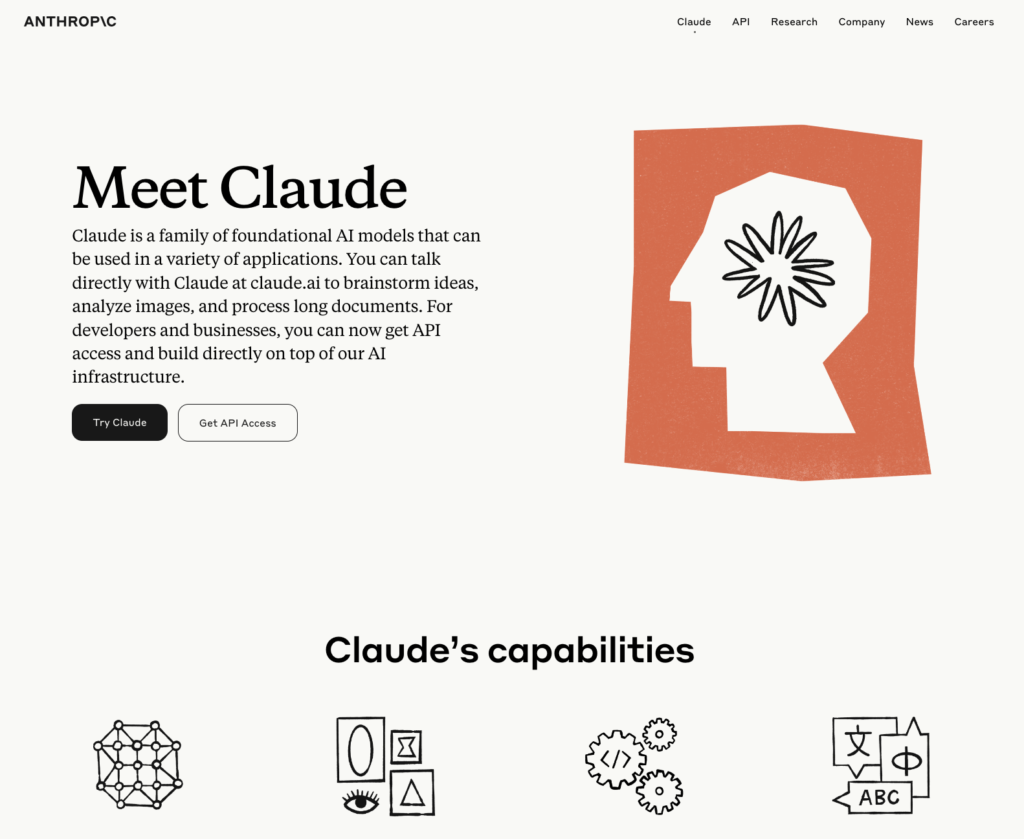
While the latter is still a few steps ahead, particularly in terms of functionality, versatility and global accessibility,Claude 3’s prowess on numerous benchmarks leaves no doubt about its immense potential.
But beyond performance, it’s above all the resolutely ethical and responsible approach adopted by Anthropic that makes it unique.
By integrating unprecedented safeguards such as fact-checking and the promotion of humanistic values right from the design stage, Claude 3 is positioned as a model of next-generation AI that is both powerful and trustworthy.
Now it remains to be seen how OpenAI and the other major players in the sector will react to this dazzling breakthrough.
One thing’s for sure: the race to become the undisputed new benchmark in generative AI is on more than ever.
There’s no doubt that the coming months will bring many more surprises in this ever-expanding field.
Related Articles

Geo vs SEO: How to Optimize for Generative Search Engines in 2026
Traditional search engines are undergoing an unprecedented transformation. With the emergence of ChatGPT, Perplexity, Google SGE, and other conversational interfaces, a new discipline has arrived: GEO (Generative Engine Optimization). For…

Genie 3: The world model that generates interactive 3D environments
Google DeepMind has just made a major breakthrough with Genie 3, its new generative world model. Forget about passive AI-generated videos—here, we’re talking about interactive 3D worlds created in real…
